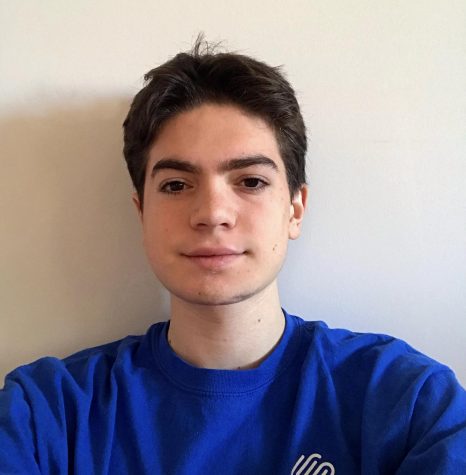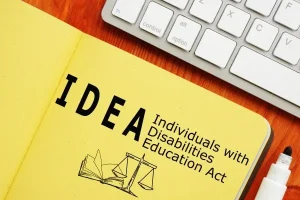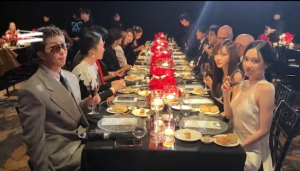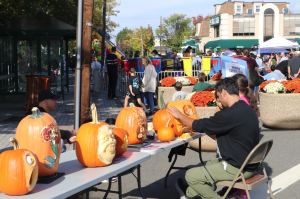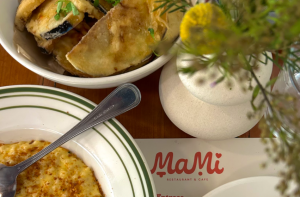A Stew of Sticks and Mud: Tales of a Lost Boyhood
December 16, 2019
It often feels strange or surreal to be the eldest of two siblings. I’m not referring to the responsibility of serving as a role model and precedent to my younger siblings nor the diligent duty of resident lab rat, being the first to go through the different levels of schooling, developmental changes, try new activities, and, in my family’s case, be born in the United States. I won’t discuss the unspoken benefits of older brotherhood, such as the starry-eyed respect from my younger siblings nor the constantly reminded pride of my parents, both of which I am overwhelmingly grateful for. Rather, in recent times I’ve begun to contemplate the disparities in the childhoods of my siblings compared to my own. Childhood is often generalized as a wholesome stage of growth, entirely personal and individual, isolated from the world around it. However, the more I pick out differences in the early years of my siblings and I, watching them progress through the same stages as I once had, just weeks ago speaking at my brother’s bar mitzvah, the easier it becomes easy to point at profound differences, products of a world reflecting rapid change.
My childhood was raw and true, reminiscent of the era before it. Being born at the turn of the century was and still is an odd privilege. With the clash of developing technology and 90’s nostalgia, Americana was truly at the center of an incessant tug-of-war. I was raised at the playground, at little league ball games, and games of tag. I watched Elmo and the Wiggles in my infancy and grew up to Spongebob on cable while Cartoon Network faded from now-classics like Johnny Bravo and Courage the Cowardly Dog to its newer, glossier showlist. Netflix was a DVD mailing service, Amazon was strictly for books, Youtube was a lawless land, forbidden unless with parental advisory. Life was simpler, or at least it felt like it. I remember trips to the zoo. I remember rolling around on brightly-colored plastic scooter boards in gym class. I remember setting butterflies free in second grade. It’s easy to idealize childhood, to harumph at my little sister’s inherited tablet as an indicator of changing times. However, with a more critical eye it’s easy to place the incipient phases of this 2010’s modern childhood, one of video games and touch screens within the course of my own. I remember the popularity of games on the Wii and competing with friends on my DS. I remember begging to play Word Mole or Brick Breaker on my dad’s Blackberry. I remember seeing projectors and blackboards give way to early forms of the Smartboard.
Once you do acknowledge the world surrounding childhood, it’s difficult to isolate a moment where it doesn’t exist, a moment where childhood felt untethered and personal. As I sat down to brainstorm my memoir on my Apple computer, listing the seeds of the newly digital world I saw in the years of my childhood, I became unable to separate the list from my youth. When did I truly feel like a kid? With some reflection and after Snapchatting my childhood friend Connor, the answer came clear as day.
The most crucial moments of my childhood were founded at recess. Recess was a time for free expression. A time for social lines to be pushed and bent, to meet other kids, to run around aimlessly, to discover creepy crawlers beneath the soil’s surface, and to climb and hang from monkey bars. I grew up in Demarest and the first elementary school in Demarest is County Road School, limited only to kindergarteners and first graders. This isolation created an indestructible bubble of youth and childish exploration. I picked up my first “bad words” on the blacktop (i.e. stupid, dumb, idiot) and learned on the playground that conception occurs when a woman puts on a wedding ring. While my small elementary school featured a wooden playground, a set of monkey bars, a painted hopscotch court, and hoola hoops, the greatest attraction for elementary school scholars far and wide was rather unexpected. It bewildered the many teachers on recess duty who walked to check why such a massive group of first graders was standing in a circle instead of enjoying typical lunch break pastimes. It educated the student body on the value of teamwork far more than any team-building exercise or episode of the Backyardigans could. It spawned philosophical discussions among the first graders on its purpose and meaning. It existed as the cultural fulcrum of the playground dynamic. It started small, but grew far beyond what my buddies and I could have ever imagined in influence and value. It was glorious. It was… a muddy puddle by the park bench.
After a particularly rainy spring morning, the puddle was birthed, like all beautiful and unimaginably important things, from chaos. The shrill call of the red, metal bells lead the first grade class running out a pair of beige doors in a frenzied stampede not unlike a pack of wild bison with the same enthusiasm as the settlers on the Oregon Trail, looking to take part in the gold rush that was thirty-six minutes of lightly-supervised bliss. In little time, as my friends and I gathered by our usual spot at the bench without noticing a new addition to the meeting, a remarkably deep puddle filled nearly to the brim with murky, muddy water. At first it seemed of no importance, we went through our daily head count before the fun could officially begin.
Zachary? Check.
Connor? Check.
Nick? Check.
Jeremy? Check.
Andrew? Check.
Impossibly amazing puddle that absolutely NEEDS to be explored? Check. Wait, what?
We all looked at the puddle at once, magnetized by its beckoning obscurity. Without another word, Zach picked up a large stick lying behind the bench and dropped it vertically into the puddle. In one swift motion, it was gone. Absent from this plane of universe as it crossed into the mud dimension. The puddle let out a series of mysterious bubbles. In unison, we inhaled deeply, aware of both the gravity and potential of our discovery.
“Guys… don’t tell anybody,” said Andrew.
“I would never,” I said.
“I won’t,” said Connor.
“Neither will I” said Nick.
“No way,” added Zach.
And so the pact was formed, nobody was to divulge the existence of this magical puddle. As soon as the silence threatened to linger, everyone rushed to grab whatever they could in a noisy bout of excitement to test the depth of the puddle.
“A rock!” Jeremy shouted, dropping the stone into the infinite brown abyss.
“This worm!” Nick exclaimed as his unfortunate, fleshy prisoner slowly sank into the muck.
“A pencil!” I joined in, watching the writing device dive into the depths.
“My left shoe!” Zach yelled with excitement, coating his sneaker in a healthy dose of mud before snatching it out of the puddle to prevent a permanent loss of his left Reebok.
After what seemed like mere seconds passed, we were called into the building for afternoon classes. Daydreaming my way through the remainder of the day, I went to bed jittery with excitement for the recess of experimentation to come.
The following day, after yet another springtime bout of rain, we were shepherded out to the blacktop. I strolled to the bench for the routine attendance check with a newfound buoyancy in each step. Eyes on my black Puma shoes, I looked up to find more classmates than I had bargained for.
Zachary? Check.
Connor? Check.
Nick? Check.
Jeremy? Check.
Andrew? Check.
Peter? Check.
Haley? Check.
Jessica? Check.
Sandra? Check.
Steven? Check.
Gregory? Check.
Gabriel? Check.
Half of the grade? Check. Wait, what?
Yes, someone or multiple offenders had broken the pact, explaining the unwelcome attendees to the greatest elementary school spectacle my childhood world had ever seen. But before I could become upset, I noticed that each classmate who had come to gaze at the wonder that was the puddle brought with them a token of sacrifice, a rock, coin, index card, or library book to submit to the muddy chasm of oblivion we had found. Item after item we watched plunge into filthy nothingness in innocent awe.
In the days that followed, the crowds only grew. At one point, the entire grade gathered around the puddle, taking turns submitting a variety of schoolhouse knick-knacks to trial by muddy puddle. Paper clips, post-it notes, and crusts off sandwiches gone forever with the excited cries of first graders sending them off on their journey to the void.
The enjoyment lasted until one recess, after a dry May weekend, the puddle was gone. The water had evaporated and the pit filled in partially by dirt, the only evidence of the period of experimentation a dense muck of school supplies mixed in and cemented with dried mud.
When reflecting on how rapidly life has changed with the expansion of technology’s influence and development, childhood can be hard to separate from the world around it. Kids raised in the 90’s will note tamagotchis and Furbies. Children of the 80’s remember cassette tapes and arcade games. It’s crucial to reflect not upon the material objects of a time period but the memories that make up who we are today. Spending lazy Sunday afternoons with my younger siblings, watching movies on Netflix on the Amazon Firestick, I often wonder what moments in my sister’s life will prove to be formative and what part in those moments this new, digital world will have in them.
Much like a muddy puddle, life and the moments make it up can often be hard to understand or derive meaning from. Life is murky, mysterious, intriguing, and, every once in a while, a bit icky. In the end, when the waters of youth evaporate from sight, only the collection of memories and values cemented after rainy days of hardship and sunny days of growth will remain. Often, the most important of these memories are those gifted by those around us. While generational comparison is inevitable, there are few things more human than asking: when did I truly feel like a kid? Or better yet: when did I truly feel alive and at one with my inner freedom and sense of curiosity?












































































































































